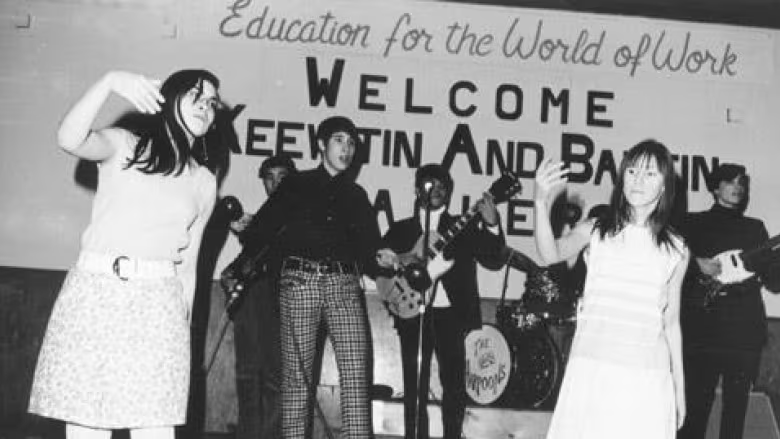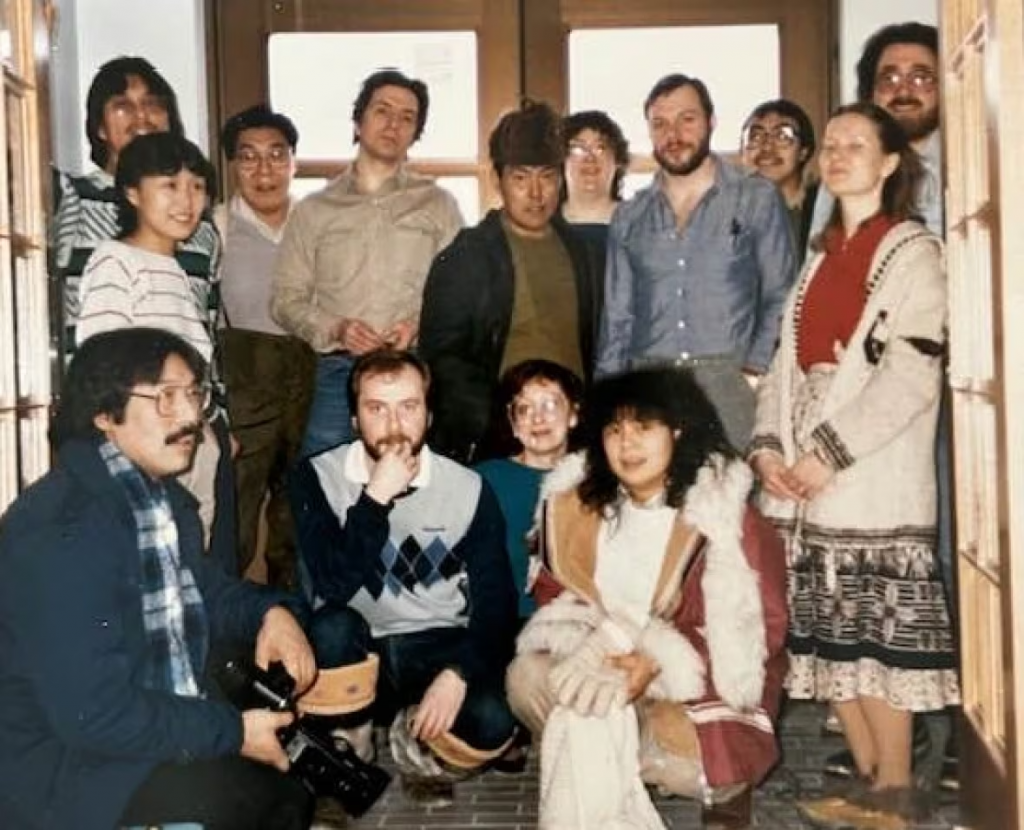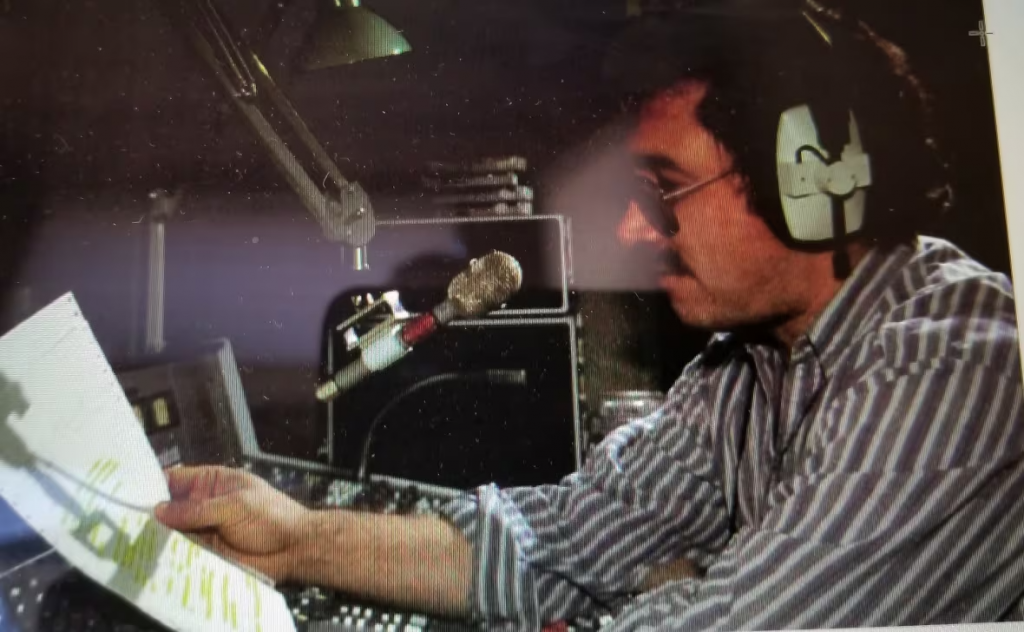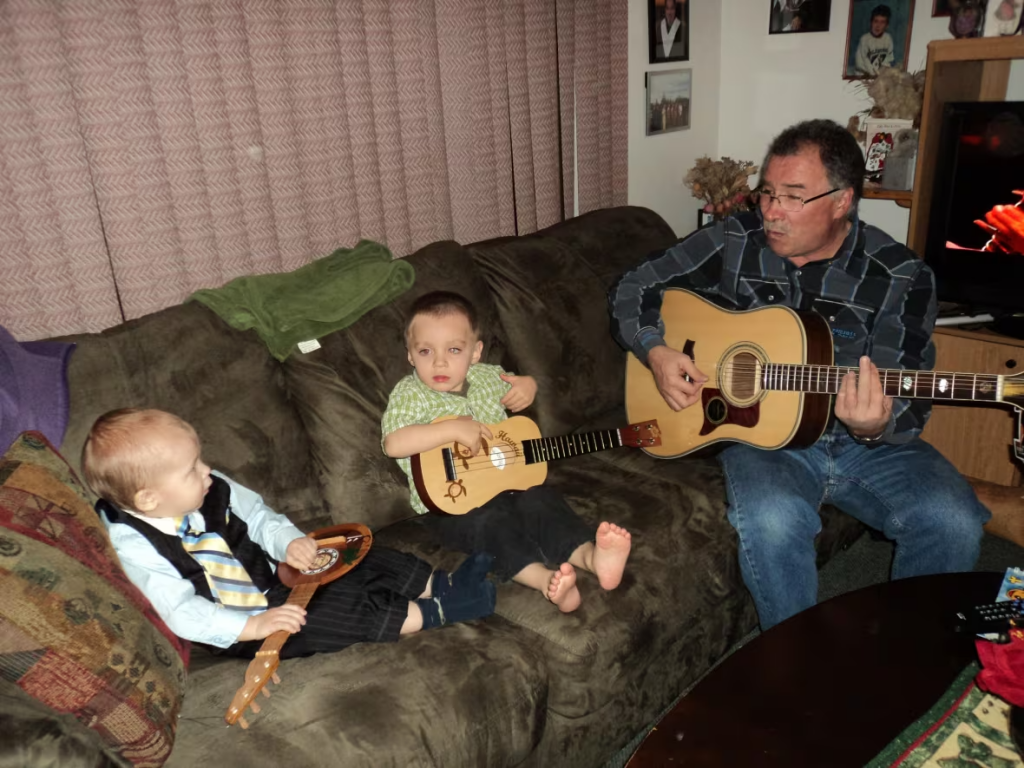‘First Inuit rock band’ member given top Quebec arts honour

By · CBC News
Inuit music icon William Tagoona to be inducted to the Order of Arts and Letters of Quebec
For somebody known as one of the pioneers of the first Inuit rock band The Harpoons, you wouldn’t think William Tagoona got his start with the band at the age of 13, jamming to “white people music.”
But singing in his mother tongue of Inuktitut wasn’t allowed at the time, while attending a residential school in Churchill, Man., in the 1960s.
“We were doing cover stuff, we were doing The Beatles, we were doing The Rolling Stones, The Animals… using white man’s instruments – their bass, guitars and drums,” Tagoona said.

Music, even if it was from “white people,” gave him and other children at the Churchill Vocational School some solace, and he said it lit a fire in him.
“We realized something’s wrong [at the residential school]. We had to make a change. The only way to do that was to learn the white man’s ways, just as good as they do. Then we’ll be able to contradict what they are saying, using their language, their tools,” he said.

It wasn’t until the 1970s that he began publicly releasing music in Inuktitut, and that’s when he said he really amped up his activism for Inuit rights and culture.
Now some six decades later, he’s being inducted to the Order of Arts and Letters of Quebec, in recognition of his work promoting Inuit culture and language, both as a singer-songwriter, and as a journalist with the CBC.
First recordings on CBC’s Northern Service
Tagoona was one of the first Inuit artists to get his work recorded on CBC’s Northern Service Recordings in 1978.
Before that, most Inuit artists had to resort to doing recordings on portable cassette players.

Patrick Nagle, former station manager of CBC Iqaluit, said Tagoona forged a path for many Inuit artists to get their work recorded in a professional studio.
“I think just about anybody you talk to would reference hearing the likes of William Tagoona… those initial recordings really inspired a whole kind of musical industry in the North. It inspired the idea of top-quality, original Inuktitut material,” Nagle said.
Tagoona also challenged CBC to get more Inuit artists on its airwaves, during an era when “our language was dying out,” the singer-songwriter said.
“Music is where you’re going to save the language. It’s not putting millions in a school program,” he said.

Pushing Inuit politicians to be tougher
Tagoona’s latest accolade also recognizes his work as a journalist.
His foray into politics began with a series of government communications roles, most prominently on a team negotiating a land claims agreement with the Quebec government over the James Bay Hydro Electric project.
He then eventually joined CBC North, and became a long-time host of the afternoon radio program, Tuttavik, broadcasting out of Kuujjuaq.
Though he never wanted to be a politician, Tagoona is a self-proclaimed political junkie with fond memories of pushing Inuk politicians on tough questions.

“Some of the broadcasters used to almost give the microphone to the politician to say whatever they wanted. We said no, no more of that.”
“If we’re going to be successful in arguing our points with Ottawa, then our own politicians better know their stuff,” Tagoona said.
Nagle said that no-nonsense approach, but also his empathy, gained Tagoona a lot of respect.
“I think that William is a visionary. I think he sees and understands what’s going on around him at a deeper level.”
Once an artist, always an artist
Tagoona has released more than 30 albums, but he’s not quite done yet.
His wife, and some of his full-grown adult children are all musicians, some of whom he has managed to recruit to his current band, and they play together at every Christmas gathering.
So, it’s only fitting that the next album he releases will be a festive album.
“Everybody has to have a Christmas album,” he said.
Tagoona will officially be inducted to the Order of the Arts and Letters of Quebec on June 10.
Related stories from around the North:
Canada: Twin Flames hope to use music to revitalize Indigenous languages, storytelling, CBC News
Finland: Sami joik, symphonic music fusion from Finland makes int’l debut in Ottawa, Eye on the Arctic
United States: How Inuit culture helped unlock power of classical score for Inupiaq violinist, Eye on the Arctic



